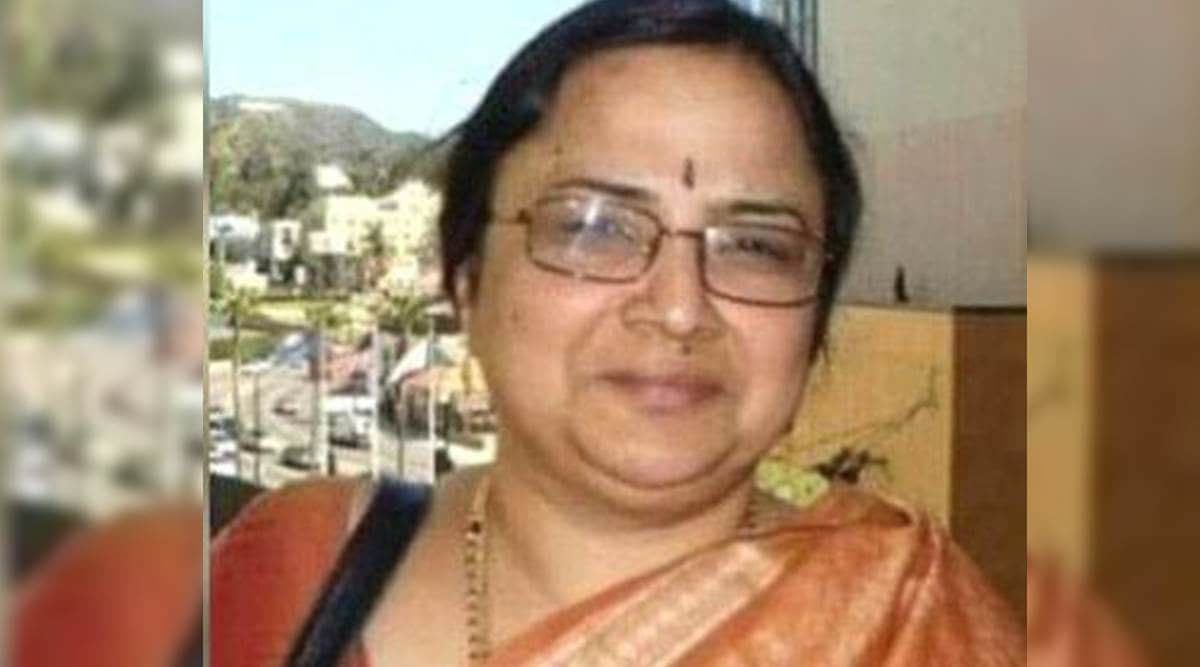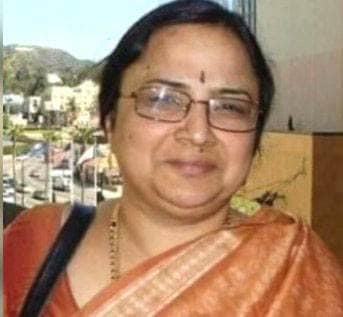 Santishree Dhulipudi Pandit will hold charge for 5 years.
Santishree Dhulipudi Pandit will hold charge for 5 years. The Ministry of Education (MoE) on Monday announced Santishree Dhulipudi Pandit, a professor of political science at Savitribai Phule Pune University, as the new vice-chancellor (V-C) of Jawaharlal Nehru University (JNU). She will be the first woman to head the institution.
Pandit’s appointment, The Indian Express has learned, was made despite her parent university’s disclosure to the Union government that her increments were withheld on two occasions for alleged misconduct.
She succeeds M Jagadesh Kumar who recently became chairman of the University Grants Commission (UGC). Her appointment order was issued on February 4 and is valid for a period of five years.
Soon after the announcement of her appointment, there was an uproar on social media over controversial tweets from an unverified Twitter handle in her name (@SantishreeD). The handle, which had tweets calling Jamia Millia Islamia and St. Stephen’s College “communal campuses”, used slurs for Indian Christians and described civil rights activists as “mentally-ill jihadists”, was deleted following the uproar.
Until Monday night, Pandit had not acknowledged the controversy or responded to requests from The Indian Express for a comment.
 Santishree Dhulipudi Pandit will hold charge for 5 years
Santishree Dhulipudi Pandit will hold charge for 5 years An alumnus of JNU from where she completed her MPhil and PhD in International Relations in 1986 and 1990, Pandit was born in Russia to author-journalist turned civil servant Dr Dhulipudi Anjaneyulu and Mulamoodi Adilakshmi, a professor of Tamil and Telugu at Leningrad Oriental Faculty Department. She graduated from Presidency College, Madras and was a gold medallist.
The polyglot, who speaks six languages including Sanskrit, started her teaching career in 1988 from Goa University as a lecturer of political science. Besides her current position as professor of politics at SPPU and a guide to several MPhil and PhD students, she has taught papers on mass media audiences, media research, politics and communication at SPPU’s Department of Communication Studies.
Pandit has published three books, several booklets, contributed nearly 100 chapters in edited books and more than 180 research papers and publications in reputed journals on political science and foreign policy.
In a statement Monday, Pandit said her immediate focus would be to provide “clean administration, students friendly and gender sensitive environment for academic excellences”. She said JNU would strive to implement the new National Education Policy and the focus would be on “constructing Indo-centric narratives”.
She has been publicly critical of what she claims are incorrect narratives in Indian history. In a webinar to commemorate the 126th birth anniversary of Netaji Subhas Chandra Bose, organised recently by the Political Science Department of Delhi’s Sri Venkateswara College, Pandit criticised the NCERT school textbooks for focusing too much on the Mughals and the “Nehru-Gandhi dynasty”. She also claimed that the violence witnessed during “Islamic invasions” had been whitewashed from history.
“The myth that the Indian national movement was extremely nonviolent, this seems to be a carefully constructed narrative… Contribution of revolutionaries to Indian national movement has been obliterated… You may agree with them or not agree with them but how can you say that this narrative doesn’t exist? …. Savarkar was a revolutionary, you may agree with him or not but please read Savarkar before condemning him. That is my plea,” she said.
In its vigilance report to the MoE, the Savitribai Phule Pune University stated that authorities had imposed a penalty of permanently withholding Pandit’s five increments with effect from July 1, 2011, and another two increments from July 1, 2017.
This punishment was imposed after an inquiry by a retired judge in 2009 found her guilty of not following rules prescribed by the UGC and AICTE while granting admission to PIO (Persons of India Origin) students under the 15% supernumerary quota from the years 2002 to 2007 when she was holding additional charge of the post of Director of the International Student Centre. Pandit had denied the charges against her at that time.
According to a former officer of the MoE, the objective of seeking a vigilance report before the final appointment of a V-C is to ensure that the candidate has the highest level of competence, integrity and morals.
“If charges of misconduct have been proved against a candidate and he or she has been punished by the parent institution, then the government usually avoids such appointments since UGC regulations demand that only persons of highest level of moral, integrity and values should be appointed as vice-chancellors,” the former officer said.
Pandit’s name for the job was recommended, among a few others, by a three-member search-cum-selection-committee which had National Board of Accreditation chairperson Professor K K Aggarwal, retired IAS officer Yogendra Narain and academician and former MLC Ashok Modak.
When contacted by The Indian Express, Aggarwal and Narain said they were not aware of the inquiry against Pandit as well as the punishment imposed at the time of her interaction with the panel.
“I was not aware of this and I can only vouch for myself. This never came up for discussion (during the interaction). Moreover, we can’t even bring it up unless this is brought to our notice,” Aggarwal said.
“Our job is to interview the candidate based on her qualifications. The vigilance part comes after shortlisting of candidates and that is done by MHRD (now known as the Ministry of Education). The MHRD takes the final call based on its inquiries (from the parent university). We were never told of this,” Narain said.
Higher Education Secretary Sanjay Murthy did not respond to calls and an SMS from The Indian Express on why Pandit’s appointment was made despite the university’s disclosure in her vigilance report.
A ministry official, however, said that once an inquiry is over and the punishment meted out, it cannot be held against the candidate.
- The Indian Express website has been rated GREEN for its credibility and trustworthiness by Newsguard, a global service that rates news sources for their journalistic standards.

